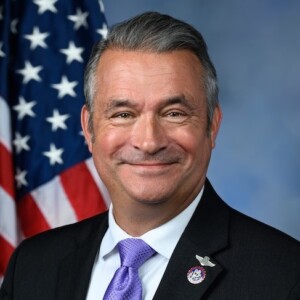Education: Past Projects
Licensing Educators for Academic Development (LEAD) Compact
Educator quality is broadly recognized as the single most important school-based factor that influences student achievement. Because of this, one of the key issues facing Colorado is the need to create an education system that attracts, supports, and retains diverse, high-quality educators.
In recognition of the importance of educator quality and research by the State Council on Educator Effectiveness, the Keystone Policy Center convened the Licensing Educators for Academic Development (LEAD) Compact in August 2013 with the support of the philanthropic community. The Compact was tasked with exploring the following four questions:
- How can we increase the quality and quantity of teachers and principals wanting to enter the profession?
- What should the pathways for entry to the profession be, how should we understand the differences between them, and what should candidates be able to demonstrate to show readiness?
- How do teachers and principals advance through the profession in a way that recognizes their unique talents and provides professional growth and development in areas that need improvement?
- With the goal of retaining our most effective teachers and principals, how do we recognize and reward them and provide growth opportunities?
LEAD Compact meetings took place between August and December of 2013 and were open to the public.
Massachusetts Educator Licensure
The Keystone Policy Center worked at the behest of the Massachusetts Department of Elementary and Secondary Education — and in partnership with TNTP (formerly known as The New Teacher Project) — to identify ways of aligning teacher licensure with the state’s educator quality standards to support student success. Through focus groups and regional meetings around the state, Keystone solicited and analyzed the perspectives of teachers, administrators, preparation program leaders and faculty, school support personnel, and district personnel to inform the design of potential changes in policy and practice.
Colorado Blended Learning
Keystone Policy Center developed a statewide roadmap to assist Colorado educators, district leaders, and state policymakers support and expand the use of blended learning — a teacher-led instructional method or strategy that combines classroom and digital learning, and through which students have some control over when, where, and at what pace they learn. Keystone worked with education leaders, teachers, and members of the public to develop the roadmap, including hosting more than a dozen meetings across Colorado, utilizing an online survey, and conferring with experts in other states.
Louisiana Teacher Preparation
At the behest of the Louisiana Department of Education and supported by a grant from the Charles and Lynn Schusterman Foundation, the Keystone Policy Center is facilitated discussions with Louisiana educators to inform proposed changes to state education policy. Specifically, Keystone convened focus groups and outreach sessions between November 2014 and April 2015 across Louisiana to gather and synthesize perspectives of university, district, and school leaders on how best to enhance teacher preparation.
Colorado Higher Education Funding
Focused on making higher education funding more understandable and accountable for Coloradans, the Colorado General Assembly passed House Bill 14-1319 to kick start a statewide conversation about a new base funding formula that considers role, mission, and performance. The Keystone Policy Center and Engaged Public partnered with the Colorado Department of Higher Education (CDHE) in 2014 to facilitate stakeholder engagement and a public input process to confront this long-term, systemic issue. The process solicited input through key informant interviews and stakeholder meetings in 16 communities with more than 400 attendees.
Keystone’s collaborative process resulted in recommendations for a new funding formula to better allocate state general fund dollars among the state’s public institutions of higher education. The state is in the process of implementing the new formula that Keystone’s work and outreach yielded.









